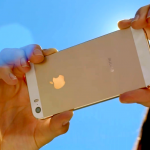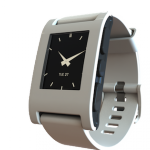Low-end Windows Phones succeed where high-end iPhones fail -- in Europe

Microsoft is going after Apple's number two spot in the European smartphone OS market as Windows Phone is steadily approaching iOS across five major local markets, according to a new report from research firm Kantar Worldpanel. Unsurprisingly, the dominant player is Google's Android, that has yet to show any noticeable signs of weakness against its less popular rivals.
In the five major European markets -- France, Germany, Italy, Spain and UK -- Android handsets accounted for 70.1 percent of all smartphones sold between June and August 2013. In second place is iOS with 16.1 percent market share, followed by Windows Phone with 9.2 percent market share. Compared to the same period, last year, iOS and Windows Phone grew by 14.18 and 80.39 percent, respectively. The latter of the two is growing much faster than its main rival, which could lead to a different hierarchy in little over a year, assuming the same growth rate is maintained.
Why iPhone 5s and 5c make sense

Today, third quarter ends, and in about three weeks Apple will reveal during its earnings call smartphone shipments. The data is a lens for truly assessing what iPhone 5s and 5c sales could be during the holidays. Already, complaints are loud and obnoxious across the InterWeb that the fruit-logo company offers little true innovation in either device -- that the magic is gone. I disagree. CEO Tim Cook is smarter than many critics think.
The smartphone market in late 2013 resembles portable music players seven years ago: Rapidly saturating, particularly in mature markets like Europe and the United States and among wealthier purchasers in countries like China, India and Russia. This release is very much about preserving and extending the Apple brand in a slowing sales segment, while preparing for what comes next. That's absolutely the right approach.
Facebook isn't getting rid of ads, but will make them more relevant to you

Facebook wants to show you more relevant ads. Advertisements are the price we pay for free online content and services, and there are no signs of it vanishing any time soon. Even though this is something internet users have accepted for some time, there are often complaints about the unsuitability of ads. Far fewer people have a problem with seeing adverts for products and services they might genuinely be interested in than those that have no relevance to their lives.
In a blog post Engineering Manager for News Feed Ads, Hong Ge explains that Facebook would like to ensure that the ads that make it into your timeline are more relevant. If you're anything like me, you've probably built up something of a mental filter for "pointless" ads, and maybe even those that might be of interest, but Facebook is keen that you see more ads and that you respond to them positively.
The most popular stories on BetaNews this past week -- September 22-28

Microsoft held an event in NYC to launch the Surface 2 and Brian was live-blogging. The full video of the launch is available to view online as are advertisements that show off the tablets' versatility. Microsoft is pinning a lot on the updated product after the first generation suffered from poor sales. There were no great new features, but there is a redesigned kickstand, a healthy speed boost, new dock and updated covers -- Brian was particularly impressed by the Blades.
Anyone buying a Surface 2 or Surface Pro 2 earns themselves a SkyDrive upgrade. Purchase a new device and your online storage gets upgraded to 200GB, but the same amount of space is available for $100 per year. Moving away from Surface-related news, Microsoft turned its guns on Google Docs, highlighting user complaints to demonstrate the superiority of Office 365.
BlackBerry reports almost $1 billion loss in Q2 fiscal results

As expected, BlackBerry is reporting a quarterly loss of nearly $1 billion as the struggling firm releases its fiscal results for the second quarter. The company managed to ship 3.7 million handsets, giving a revenue of $1.6 billion. This is a drop of 49 percent from the first quarter ($3.1 billion) and 45 percent down on the same period last year ($2.9 billion). Overall, there are operating losses amounting to $965 million.
A large proportion of the units shipped were BlackBerry 10 handsets sent out to wholesalers and mobile firms, and profits from these will not be counted until sold to customers. In Q2, 5.9 million smartphones were placed in customers' hands, and this includes handset shipments from previous quarters. The poor results had been widely predicted, and BlackBerry cancelled its scheduled conference call.
Office of Fair Trading says games should not encourage in-app purchases by children

The Office of Fair Trading (OFT) is calling on the games industry to avoid pressuring children into making in-app purchases in games and potentially running up large bills. Back in April, an investigation began into the ways in which children are pressured into making in-app purchases. 38 web and app-based games thought to appeal to children were looked at, and the results of the investigation are available in the Children's Online Games report.
The OFT aimed to determine whether the way in-app purchases were presented could be considered "misleading, aggressive or otherwise unfair". As a result of the investigation, the OFT has drawn up a set of eight proposed principles that apps and games should follow. The principles include clearly and prominently informing app users about the potential for costs to be incurred through the app. It is suggested that users should be able to fully understand the current and future costs associated with any app they download.
BlackBerry cancels Q2 earnings conference call and webcast

Tomorrow was supposed to the day BlackBerry held a conference call and webcast to discuss its Q2 earnings, but the company has now cancelled this. Complete second quarter financial results will still be released tomorrow (Friday, 27 September) at 7:00am ET, but there will now be no public follow-up immediately afterwards.
More details will be released, however, when the company publishes the Management’s Discussion and Analysis and consolidated financial statements next week.
Pebble smartwatch comes to AT&T

Following Samsung's Galaxy Gear, another smartwatch enters AT&T's portfolio. The US mobile operator has announced that its customers will be able to pick up the Pebble, one of the most popular devices of its kind. It will be available starting tomorrow, September 27, from AT&T's online store and "select" retail locations.
Unlike the Galaxy Gear which costs $299, AT&T will sell the Pebble for $150 which is the same amount that users would have to pay when buying it from the official website. For the money, buyers get a smartwatch which works in conjunction with Android and iOS handsets via a Bluetooth connection. As one of the first devices to gain traction on the market, the Pebble has an attractive ecosystem developed around it: there are various apps and ways to customize it.
Twitter Alerts delivers the information you need in emergencies

Twitter announces details of its new Twitter Alerts service which will make it possible to disseminate information when other methods fail or when large groups of people need to be notified about something. What does this mean? In times of national emergency, crisis or natural disaster, Twitter Alerts could be used to provide details about what is happening and what steps are being taken by authorities.
In times of emergency, it is very common for people to turn to the internet. But as we know all too well, the internet is home to a wealth of misinformation so this could end up to be less helpful than it should be. A number of international organizations have already signed up to be part of Twitter Alerts including the American Red Cross, FEMA, the World Health Organization, and various police and fire departments. Other interested organizations are invited to take part.
15-percent of the US don't want to connect with the rest of us

Not to call out my parents, but neither is online -- they do not own a computer or tablet and, only last week, my mom was rather forcefully pushed into the smartphone world thanks to an aging flip phone. I can at least partially forgive them -- they are not young and these new-fangled gadgets lose them, though others in the same age bracket seem to have moved along with the times.
At any rate, the couple is not alone according to a new report announced by Pew Research. A full 15-percent of Americans are offline and, of those, 94-percent plan to stay that way.
Using Mailbox for iOS? There's a JavaScript security hole to beware of

A potentially serious security flaw in iOS email app Mailbox is being investigated. Michael Spagnuolo, an Italian computer engineer writes about discovering that the app automatically executes any JavaScript that might be embedded in the body of an email.
Michael has recorded a video demonstrating a few proofs of concept which leaves iPad and iPhone users open to potential attack. His example scenarios are purposefully harmless -- he has opted to show how opening an email could lead to an app being opened without permission or instigate a tweet or SMS (although it is not sent without confirmation) -- but the security hole is going to make many users feel uneasy.
New York State drivers to get cell phone texting zones

Distracted driving is not a new phenomenon. Even before cell phones, drivers could be seen putting on make-up, shaving and eating during their daily commute. However, the cell phone and ultimately text messaging has seemingly exacerbated the dangerous practice. You see, according to New York State Governor Andrew Cuomo, there has been "a 365 percent increase in tickets issued in summer 2013 compared to summer 2012 for distracted driving".
In an effort to reduce this, the Governor explains, "in addition to tougher penalties, new detection methods for State Police and ongoing public outreach efforts, we are now launching special Texting Zones to allow motorists to pull over and use their phones. These Zones will be identified with signs along the Thruway and State Highways, reminding drivers that there is a nearby opportunity for them to legally and safely use their phone. With this new effort, we are sending a clear message to drivers that there is no excuse to take your hands off the wheel and eyes off the road because your text can wait until the next Texting Zone".
How to find, lock, ring and wipe your Windows Phone remotely

Windows Phone receives quite a bit of bad press for its immature feature set and lack of killer apps. The smartphone operating system, however, has a few neat tricks up its sleeve which some users may not even know about. The one feature that I find to be quite useful yet highly understated is the ability to find, lock, ring and wipe Windows Phones, officially known as "find my phone", which comes in handy in case of theft or misplacing the handset.
The feature is available, and probably operational too, out-of-the-box. You only need a couple of minutes to spare, a Windows Phone and access to a computer, smartphone or tablet, to set it up properly and find, lock, ring or wipe your handset remotely.
RealNetworks simplifies video sharing with RealPlayer Cloud

Now here's a blast from the past. RealNetworks (remember it?) is launching RealPlayer Cloud, a new service that aims to make it easier than ever to share videos between devices and across platforms. The service has been developed to help avoid the need to transfer videos from one device to another or upload them to an online storage repository ready to download elsewhere.
The idea is that users do not have to worry about the platform videos will be viewed on, or the format they are saved in. There are a huge number of video codecs in use, so the appeal of something that helps to overcome compatibility issues is understandable. There are plenty of services that already make it possible to stream video wirelessly from a PC to an iPad or other device. This is nothing new, nor is the ability to pick up from where you left off watching when you switch devices.
Twitter updates @MagicRecs recommendation system for mobile users

Twitter is in the process of rolling out a new notification system designed to help users find interesting people to follow. It is not an entirely new system -- the micro blogging site is basing the feature on its @MagicRecs account, which started off as an experiment earlier in the year, making "magic recommendations" about who Twitter users might like to follow.
@MagicRecs monitors the activity of the people you follow and people in your network and sends out direct messages letting you know when several people you are connected to follow a particular user. The thinking is that if two or more people are interested in following someone else, there's a high chance that you will be too. In a blog post, Senior Software Engineer, Venu Satulur explains how the recommendation system has been tweaked and updated.
Recent Headlines
BetaNews, your source for breaking tech news, reviews, and in-depth reporting since 1998.
© 1998-2025 BetaNews, Inc. All Rights Reserved. About Us - Privacy Policy - Cookie Policy - Sitemap.